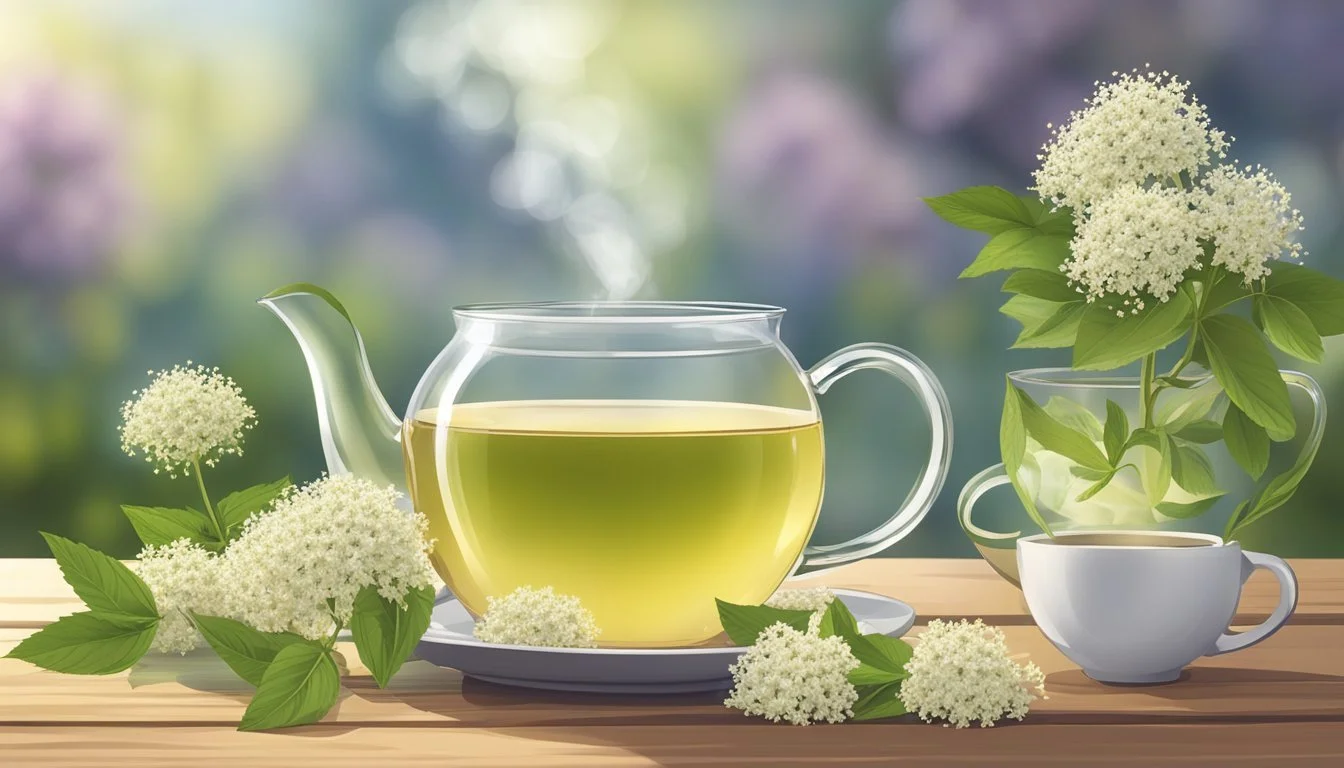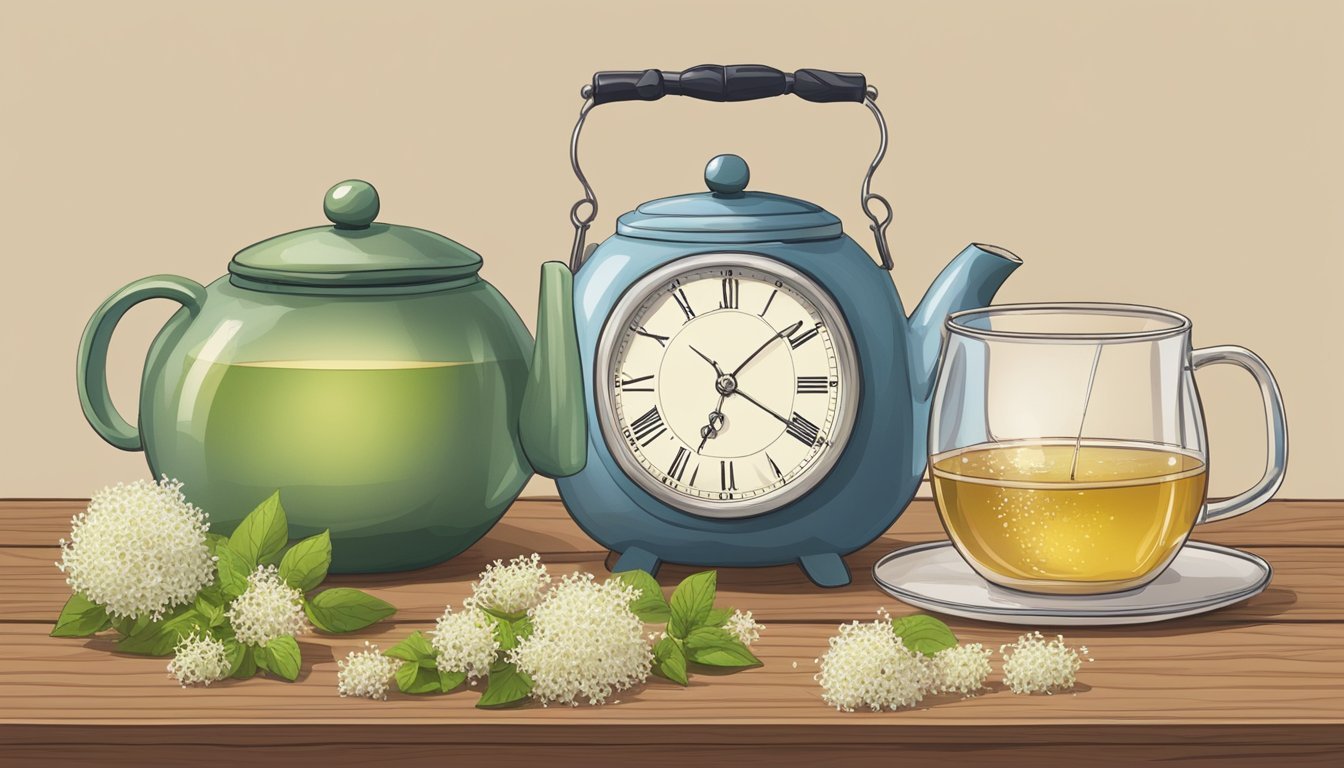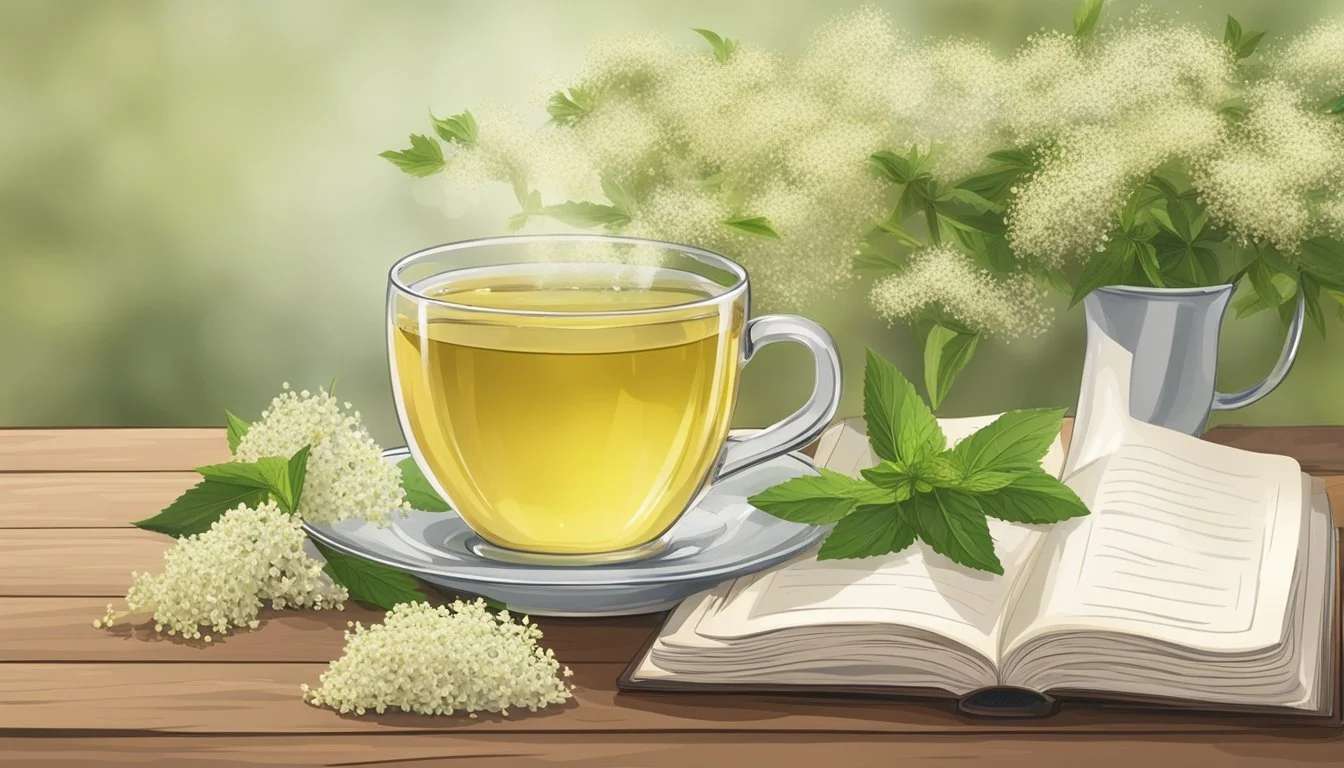How Long Does Elderflower Tea Last
Shelf Life and Storage Tips
Elderflower tea is often celebrated for its delicate floral flavor and health benefits, including its potential to alleviate cold and flu symptoms. As with any herbal tea, its shelf life is a point of consideration for those looking to enjoy its qualities. The longevity of elderflower tea depends on various factors, such as the form of the elderflowers used and the storage conditions.
When made from fresh elderflowers, the tea is best consumed immediately to enjoy its full flavor profile and benefits. However, if stored properly in a sealed container in the refrigerator, it can last for up to 48 hours. On the other hand, tea made from dried elderflowers can last much longer. Provided it is kept in an airtight container away from direct sunlight, moisture, and strong odors, the dried tea can maintain its quality for several months.
As for the prepared elderflower tea, once brewed, the consumer should ideally drink it within a short period to ensure taste and efficacy. Refrigeration can extend its freshness for a couple of days, but the tea's quality will gradually diminish over time. It is crucial to be mindful of any changes in taste, aroma, or appearance, as these can indicate that the tea is no longer at its optimal state for consumption.
What Is Elderflower Tea?
Elderflower tea is a beloved herbal beverage known for its distinctive floral flavor and its connection to the Sambucus nigra plant. It is enjoyed across the globe for both its taste and its potential health benefits, particularly during the summer bloom.
Definition and Origins
Elderflower tea is an infusion made from the creamy-white blossoms of the elder tree, scientifically known as Sambucus nigra. The tree is native to Europe but is also found in parts of North America and Asia. Traditionally, the flowers are collected in late spring to early summer, which is the peak bloom period for elderflowers.
Characteristics of Elderflower
The elderflowers impart a distinctly floral and slightly sweet flavor to the tea, which is often described as subtle and refreshing. This is due to the presence of the plant's natural aromatic compounds. The flowers used to make the tea are usually dried, although fresh blossoms can also be used, provided they are properly identified and harvested.
Culinary Uses
Elderflower tea is versatile in its culinary applications. Primarily consumed as a hot beverage, it can also be served cold for a refreshing summer drink. Beyond brewing tea, elderflowers are also used in making syrups, cordials, and garnishes for desserts. The characteristic flavor of elderflower pairs well with other summer fruits and can be incorporated into various recipes for an added floral note.
Health Benefits of Elderflower Tea
Elderflower tea is renowned for its potential to bolster the immune system and provide relief from common respiratory ailments. Its content of vitamins, minerals, and anti-inflammatory properties makes it a beneficial herbal beverage for overall health maintenance.
Vitamins and Minerals
Elderflower tea is a source of bioactive compounds including vitamin C and quercetin, which are pivotal for maintaining a robust immune function and mitigating inflammation. The presence of these antioxidants helps protect the body's cells from damage caused by free radicals.
Immune Support
The antioxidants in elderflower tea, notably vitamin C, play a significant role in immune system support. They contribute to the defense against pathogens and support various cellular functions of the body's immune system.
Common Cold and Flu Relief
Consumption of elderflower tea may alleviate symptoms associated with the common cold and flu. Its antiviral properties can aid in reducing the duration and severity of these respiratory conditions.
Digestive and Inflammatory Conditions
Elderflower tea has reported anti-inflammatory properties that can help with digestive upset and other inflammatory conditions. Additionally, its potential benefits extend to possibly managing symptoms of diabetes due to these properties, though one should be cautious and not ingest toxic parts of the elder tree, such as seeds or leaves.
Preparation Tips
When preparing elderflower tea, one should consider the quality of ingredients and the steeping process to ensure a flavorful and aromatic beverage.
How to Brew Fresh Elderflower Tea
To brew fresh elderflower tea, they will need freshly picked elderflowers. One should rinse the flowers gently to remove any debris or insects. It's recommended to use boiling water to infuse the delicate elderflower blossoms.
Bring water to a boil.
Add one or two large elderflowers per cup into a teapot.
Pour the boiling water over the flowers.
Cover and steep for 5 to 10 minutes.
Strain to remove the flowers and serve hot.
Optionally, they may add sweeteners like honey or lemon to taste.
How to Brew Dried Elderflower Tea
When using dried elderflower, the process is similar but they'll need to ensure the dried flowers have been stored properly to maintain their potency.
Boil water and allow it to cool slightly to 95°C/203°F.
Add 1-2 teaspoons of dried elderflowers per cup to a teapot.
Pour the hot water over the flowers.
Steep with the teapot covered for 5-10 minutes.
Strain and serve.
Additions like honey, ginger, or mint can enhance the flavor and are great complements to the tea.
Elderflower Tea Recipes
There are several recipes that incorporate elderflower tea as a base:
Elderflower and Lemon Tea:
Prepare as per the fresh elderflower tea instructions.
Include a slice of lemon or a spoonful of lemon juice for added zing.
Elderflower and Herbal Blend:
Combine dried elderflowers with nettle, mint, or turmeric while steeping.
Amounts can vary, but a balanced ratio is 1 teaspoon of elderflower to ½ teaspoon of secondary dried herbs.
In all recipes, they can tailor the strength and sweetness to their preference, noting that additions like honey not only sweeten the tea but can also provide additional soothing properties.
Storage and Shelf Life
The key to maximizing the shelf life of elderflower tea lies in understanding optimal storage conditions and recognizing when the tea has passed its prime.
Preservation Methods
To preserve dried elderflowers used for tea, one should employ airtight containers stored in a cool, dark place. This method prevents moisture and light from diminishing the quality of the dried flowers. If the storage conditions include a refrigerator or freezer, ensuring the container is completely airtight becomes even more crucial to prevent condensation.
Factors Affecting Longevity
Several factors influence the shelf life of elderflower tea:
Exposure to Light: Degrades the quality faster.
Humidity and Temperature: High humidity and temperature accelerate deterioration.
Oxygen: Exposure leads to oxidation, reducing flavor and aroma.
pH: The pH level of the environment should be neutral to avoid altering the flower's composition.
Signs of Deterioration
Elderflower tea is less effective and enjoyable once it starts to deteriorate. Indicators of degradation include:
Loss of Aroma: A decrease in the tea's natural scent.
Dull Flavor: If the taste is noticeably less vibrant, it may be past its best.
Visual Changes: Any discoloration or presence of mold suggests the tea should no longer be consumed.
By following proper preservation methods and being aware of the factors affecting longevity, consumers can ensure their elderflower tea maintains its quality for the longest time possible. Recognizing the signs of deterioration will also aid in determining when the tea has last reached the end of its optimal use.
Safety and Precautions
When enjoying elderflower tea, it is essential to adhere to safety guidelines and be aware of precautions, especially concerning specific populations and potential side effects.
Safe Consumption
One should always make sure to consume elderflower tea in moderation, as excessive intake might cause adverse effects. To ensure safety, individuals should only use the flowers of the elder tree, Sambucus nigra, and not other parts of the plant, which can be toxic.
Considerations for Special Populations
For pregnant and breastfeeding women, the safety of elderflower tea has not been firmly established. As a precaution, they are generally advised to avoid the tea or to consult a healthcare provider prior to consumption. Similarly, individuals with allergies to plants in the same family as elderflower should exercise caution, as they may be more likely to experience allergic reactions.
Potential Side Effects
While elderflower tea is associated with various health benefits, there can be side effects, particularly when consumed in large quantities. These may include digestive system upset and, less commonly, allergic skin reactions. If any side effects are noted, one should discontinue use and consult a healthcare professional.
Culinary Applications Beyond Tea
Elderflower, with its delicate floral taste, finds its use beyond just brewing a comforting cup of tea. It is a versatile ingredient in the culinary world, where it imparts a subtle sweetness and fragrant aroma to a variety of dishes.
Elderflower in Desserts and Drinks
Desserts:
Cakes and Pies: Elderflower adds a hint of floral flavor to cakes, cupcakes, and fruit pies.
Sorbet and Ice cream: The inclusion of elderflower can create refreshing sorbets and ice creams.
Drinks:
Cocktails and Non-Alcoholic Beverages: Elderflower is commonly used to enhance cocktails, especially when paired with spirits like gin. Non-alcoholic options include lemonade and sparkling water.
Using Elderflower in Homemade Syrups
Elderflower Cordial:
This is a simple syrup that infuses the essence of elderflowers. It's made by steeping fresh elderflower blossoms in a mixture of sugar, water, and lemon.
Elderberry Syrup:
While not made from the flowers, elderberry syrup uses the berries of the same plant and is renowned for its health benefits. It's typically cooked down with sugar and lemon juice to produce a thick, rich syrup that can be drizzled over desserts or added to drinks.
Frequently Asked Questions
When discussing elderflower tea, it's helpful to consider not only its primary uses but also alternative applications and ingredients that can serve as substitutes.
Alternative Uses of Elderflower
Elderflower, most commonly used to create aromatic elderberry tea, has versatility extending beyond its traditional role as a hot beverage. Elderflower can be utilized to make elderflower syrup, which is a sweet and floral ingredient for enhancing drinks and desserts. Moreover, the syrup can be diluted with water to create a refreshing elderflower drink on its own or mixed with other beverages to lend a summery twist. Another unique use is incorporating the infusion into iced tea for a floral note, which is excellent for cooling down on hot days.
Substitutes for Elderflower in Recipes
In recipes that typically call for elderflower, similar herbs with floral notes can be employed as substitutes. Some of the most effective replacements include:
Chamomile: Offers a gentle, apple-like flavor and is known for its calming properties.
Lavender: Delivers a distinct floral taste and aromatic quality, but should be used sparingly.
Hibiscus: Provides tartness and a deep red hue, adding both color and flavor.
Substitutes should be chosen based on the desired outcome in flavor and therapeutic benefit, as each alternative brings with it a unique profile of flavonoids and potential health properties. For instance, in the context of cold and flu season, hibiscus, like elderflower, is rich in Vitamin C.








